The Austrian poet and novelist Rainer Maria Rilke wrote, “Fame is nothing but the sum total of misunderstandings that cling to a name.” George Frideric Handel (1685-1759) is almost universally acknowledged as one of the greatest composers of his age, yet his fame rests almost entirely on a small number of orchestral works and oratorios, Messiah in particular. “In fact, he contributed to every musical genre current in his time, both vocal and instrumental, and the composition of operas, mainly on Italian librettos, dominated the early part of his career.”
Background
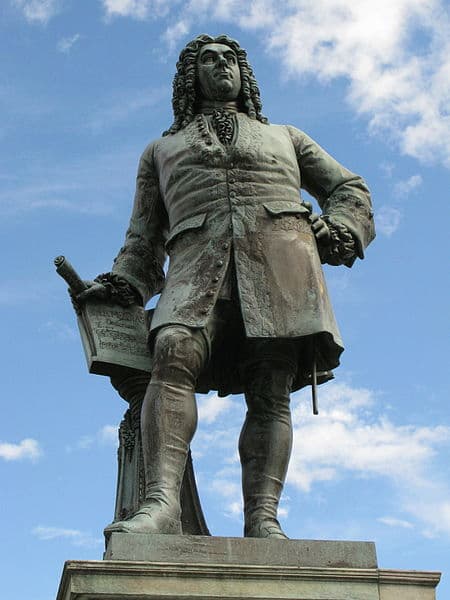
Monument of George Frideric Handel
George Frideric Handel (baptised Georg Friedrich Händel) was born on 23 February 1685 to Georg Händel, a barber-surgeon in the service of the Duke of Saxe-Weissenfels, and Dorothea Taust, a pastor’s daughter thirty years his junior. Georg Senior was described as a “man of strength if lacking in warmth. Iron self-discipline, force of character, robust health, pugnacious will to fight for a cause, courage, infinite capacity for work, as well as an astute business sense, are all traits inherited by his son.” His mother apparently was a pious woman, whom Handel remembered with warm affection, and she noticed the musical abilities of her son at an early age. His father, meanwhile, wasn’t interested in frivolities such as music, and he planned on a career as a lawyer for his son.
George Frideric Handel: Recorder Sonata in A minor, Op. 1, No. 7 (Laszlo Czidra, recorder; Pal Kelemen, cello; Zsuzsa Pertis, clavichord)
Handel’s First and Only Music Teacher: Friedrich Zachow
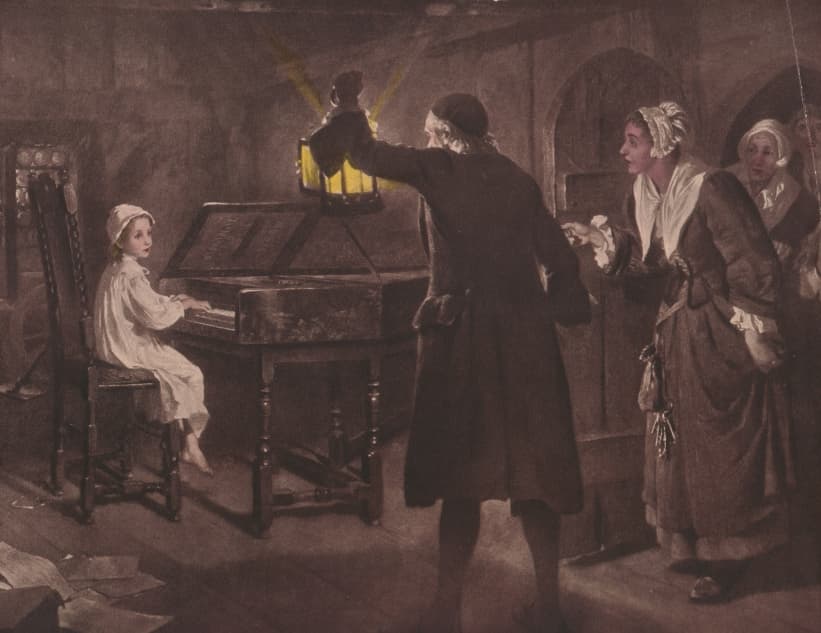
The Child Handel discovered by his Parents, by Margaret Isabel Dicksee
It was the Duke of Saxe-Weissenfels who changed Georg Senior’s mind. Father and son made frequent journeys to Weissenfels, where the Duke had established a residence. On one such occasion, the young Handel was permitted to play the postlude to a service, and the Duke was rather impressed that a nine-year-old boy could play with such ease and fluency. His Serene Highness suggested that the boy’s musical talent was to be encouraged. As such, young Handel was handed to Friedrich Zachow, organist at the Liebfrauenkirche at Halle, “who gave him excellent tuition both on the organ and harpsichord as well as in composition.”
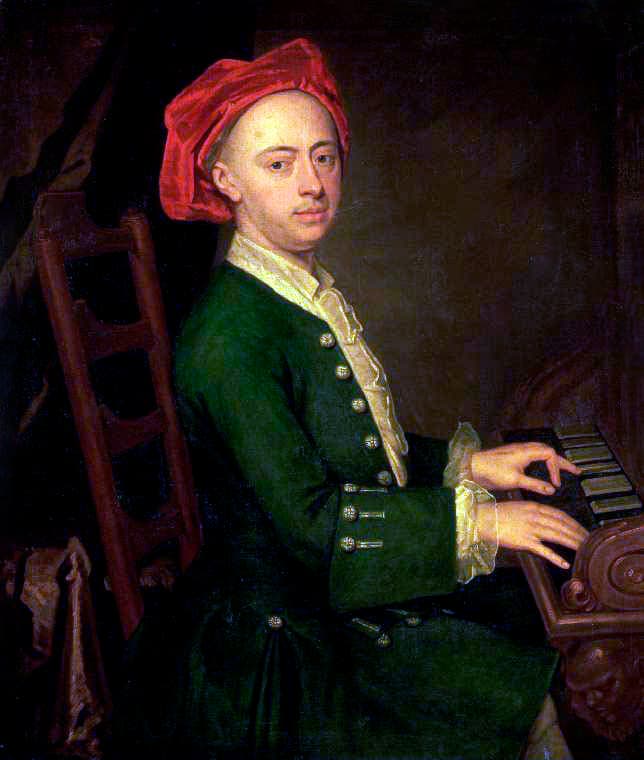
George Frideric Handel, 1720
In fact, Zachow would be Handel’s first and only teacher. At age eleven, Handel was able to substitute for his teacher on the organ, and his first compositions possibly date from 1696. By all accounts, Zachow was an excellent, understanding, and solicitous teacher, and “his lessons were copious and severe.” Handel would later report, “I used to write like the devil in these days, filling reams of paper with daily exercises with Zachow.” Besides instructing Handel in the rudiments of counterpoint and harmony, he also made him copy significant and instructive scores by all manner of composers. Handel copied these scores into a notebook dating from 1698, and although this particular document has been lost, Handel described works by Johann Krieger, Johann Caspar Kerll, Johann Jakob Froberger, Johann Kuhnau, and Heinrich Albert.
George Frideric Handel: Trio Sonata in G minor, Op. 2, No. 2 (The Brook Street Band)
His Interest Towards Operas
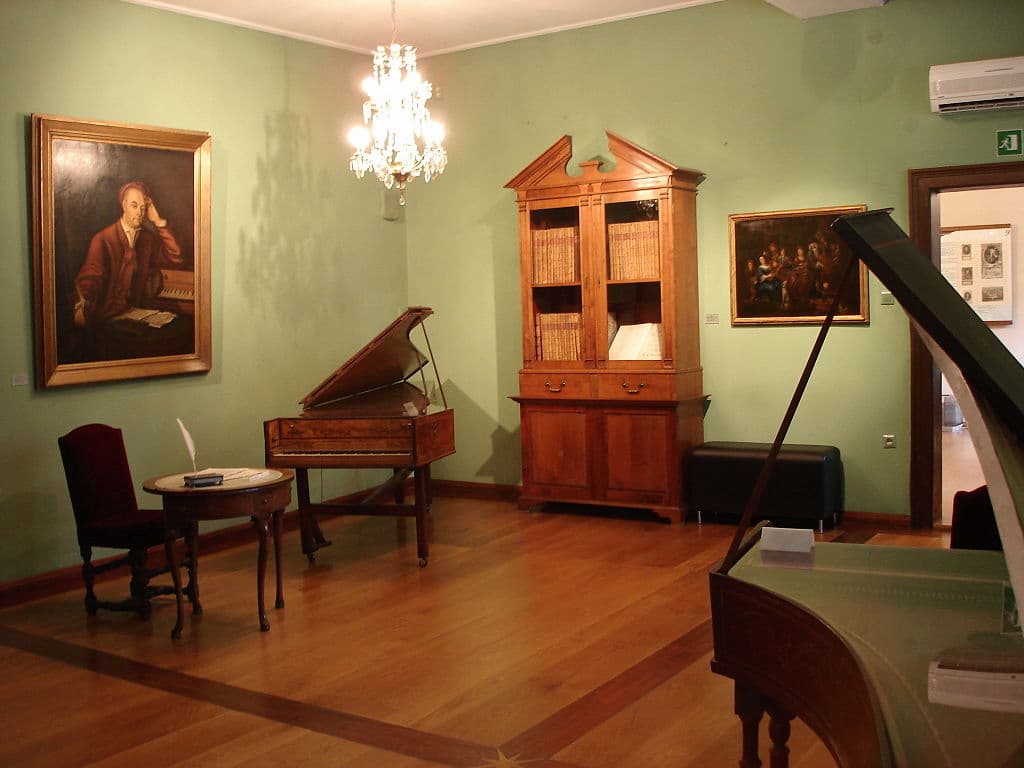
Interior of the Handel House in Halle in Saxony-Anhalt, Germany
Georg Händel died when the boy was not quite 12, “Perhaps removing a source of opposition to musical studies.” However, as the only surviving son, young Georg gained new responsibility for the maintenance of his family. He was appointed organist at the Calvinist Cathedral Church in 1702, and he did enroll at Halle University. However, Handel quickly started to look further afield, and a taste for opera stimulated a visit to Berlin. Apparently, he met Giovanni Bononcini and Attilio Ariosti, and in 1703 Handel left Halle, to return only as an occasional visitor. However, Handel was not drawn to Berlin but the city of Hamburg, as it contained the only regular and independent opera company in Germany. He auditioned at the opera house in 1703 and was employed as a second violinist, and later played continuo harpsichord. Handel made friends with the influential composer, singer, and theorist Johann Mattheson. The opera company was under the control of Reinhard Keiser, a passionate, undisciplined, and profligate man of genius, always thirsting for success and money. He did compose well over 100 operas, but as “a man of gaiety and expense,” he frequently had to flee the city from debtors.
George Frideric Handel: Concerto Grosso in G Major, Op. 3, No. 3 (Capella Istropolitana; Jozef Kopelman, cond.)
Handel’s Opera Compositions
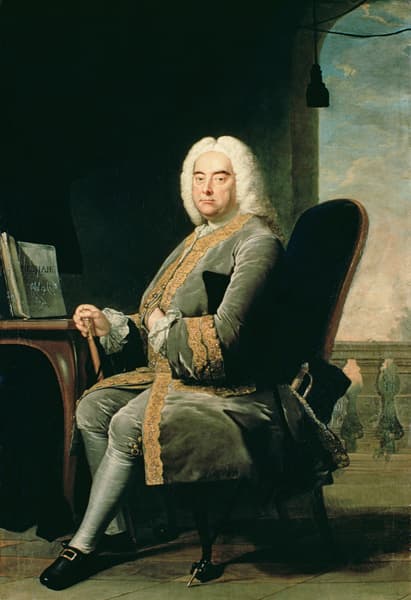
George Frideric Handel, 1756
With the management in the hands of Keiser’s partner Drüsicke, Handel got the opportunity to compose his first opera. When Keiser fled the city, he left behind a partially composed opera for which preparations were already in progress. The company was looking to recoup the money that had been spent on sets and costumes, and a composer was needed who could provide a new score on the same libretto. Handel was available, and he took Keiser’s music as his primary model. Almira was a huge success, and Handel was immediately commissioned to write another opera, Nero. Keiser, meanwhile, was decidedly unhappy that the Handel opera had been a success, and he quickly finished the music for his own Almira setting. As a contemporary critic writes, “the text was so leaden and un-dramatic that the veteran maestro’s work did not meet with success.” The story of Kreisler’s jealousy has probably been overstated, as setting the same libretto was a widespread custom. One thing for sure, after Keiser’s return in August 1705, Handel’s activities as a composer seem to have been cut off. Handel remained in Hamburg only until the summer of 1706, and the pair of operas Florindo and Daphne were probably composed in Italy, and Handel only returned to Hamburg in late 1707 to direct them.
For more of the best in classical music, sign up to our E-Newsletter
George Frideric Handel: Almira, “Der Himmel wird straffen”
